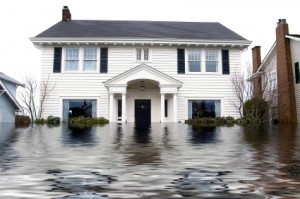The House of Representatives voted 406-22 to approve a five-year reauthorization of the National Flood Insurance Program (NFIP), and now the vote is on to the Senate. The current NFIP extends until September 30 but now will be revamped to include ongoing flood and hurricane damage.

According to the Miami Herald, the changes in the structure of the program will set actuarial sound premiums, reduce current rate subsidies, improve flood area mapping, call for the Federal Emergency Management Agency to study incorporating private insurance and increase coverage for homes and commercial buildings. The bill does not address wind damage, however.
The current program has lapsed four times since 2008, which has delayed real estate transactions and negatively affected the real estate market. However, House Financial Services Committee Chairman Spencer Bachus explained to the newspaper that these changes should help.
“This reform bill protects taxpayers by eliminating federal subsidies and reducing the program’s need to borrow additional funds from the Treasury.” Bachus said. “It also helps bring certainty to the housing market by ensuring potential home buyers can obtain flood insurance they need to get financing to purchase their home.”
Many property owners currently pay discounted rates for insurance but changes in the program will raise the annual limit on premium increases from 10 percent to 20 percent, and maximum coverage limits will also be updated for inflation. These rates will be phased in one year after enactment.
Though there are positive and negative changes at play, Jimi Grande, senior vice president of federal and political affairs for the National Association of Mutual Insurance Companies, says that this vote brings fiscal responsibility to the National Flood Insurance Program.
“For the NFIP to survive, it must be able to price coverage to reflect the risk of flooding facing a property, and cut the losses from those properties that will not undertake any mitigation efforts despite repeated flooding,” Grande said.
